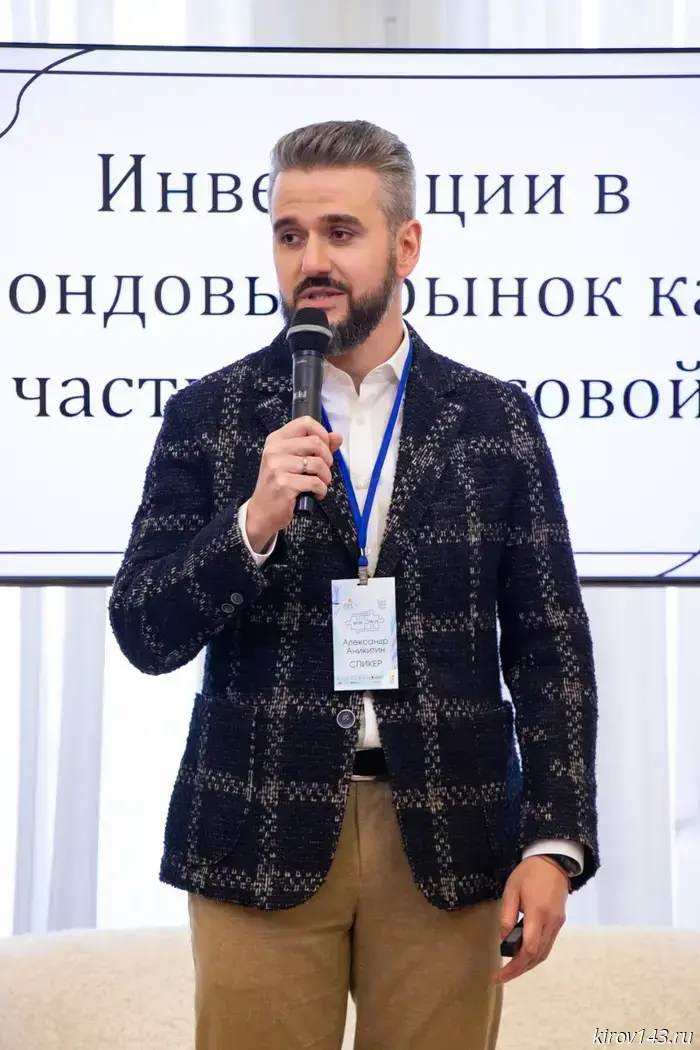
Analysis of trade war risks and their impact on the Russian economy
In the context of global economic instability, voiced in a speech by the head of the Bank of Russia, Elvira Nabiullina, in the State Duma on April 8, as well as in statements by Deputy Finance Minister Ivan Chebeskov, significant risks for the global and Russian economies are outlined.
Particular attention is being paid to the possible escalation of trade contradictions between the United States and China, which could lead to fragmentation of the global economy and increased protectionist tendencies. Let us consider in detail the key risk factors, their impact on the economic dynamics of Russia and the prospects for adaptation.
Trade War Risk Analysis
Trade conflicts between the world's largest economies are a complex macroeconomic phenomenon that has a systemic impact on global markets. The main risks of the current situation include:
Escalation of the trade standoff between the United States and China
Increased trade barriers, such as increased import duties and sanctions restrictions, can significantly reduce international trade. This will create prerequisites for the destabilization of global supply chains, which will put pressure on export-oriented economies.
The trade war between the United States and China has not only an economic, but also a geopolitical dimension. This can lead to the formation of closed economic blocs, which is especially dangerous for countries that depend on foreign markets.
Fragmentation of the global economy
The formation of regional economic zones focused on domestic consumption may lead to a decrease in the level of international cooperation. For Russia, this means that it is necessary to review the strategy of interaction with key trading partners.
Countries that support or trade with participants in the trade war may face secondary sanctions. Given Russia's close economic ties with China, this threat requires special attention.
Impact on the Russian economy
The Russian economy, being integrated into global trade, is subject to significant risks associated with the escalation of trade conflicts. The risk scenario presented by the Central Bank of the Russian Federation provides for the following consequences:
Compression of the real economy
The fragmentation of the global economy may limit Russia's access to key markets, especially in the European Union and the Asia-Pacific region. This will have a negative impact on revenues from the export of hydrocarbons and other raw materials.
In conditions of increased instability, foreign investors may reduce their investments in the Russian economy, which will slow down the development of high-tech industries and the modernization of production facilities.
According to expert estimates, the contraction in global trade may lead to a decrease in the growth rate of Russian GDP by 1-2 percentage points, while the export-oriented sectors will be the most vulnerable.
Acceleration of inflationary processes
The introduction of new tariffs and sanctions restrictions will increase the cost of imported goods, which will have a negative impact on consumer prices.
Disruption of global supply chains may lead to shortages of certain categories of goods, which will further increase inflationary pressures.
In the context of increased geopolitical tensions, the ruble may experience significant pressure, which will lead to its devaluation and further increase in the cost of imported goods.
Structural changes in the economy
Russia may be forced to accelerate the process of import substitution and the development of its own production facilities. However, this process requires significant capital investment and time to implement.
Moscow may step up cooperation with China, India and other countries outside the Western economic bloc. However, such partnerships come with their own risks, including increasing dependence on the Chinese economy.
Strategic recommendations
To minimize the negative effects of the trade war and the fragmentation of the global economy, Russia should take a set of measures aimed at increasing the stability of the economic system:
The development of anti-crisis mechanisms
The Government and the Central Bank need to develop an action plan in case of deterioration of external conditions, including support for the most vulnerable sectors of the economy, such as agriculture, mechanical engineering and light industry.
The creation of additional foreign exchange reserves and the development of the domestic financial market will help mitigate the effects of possible sanctions and ensure the stability of the national currency.
Economic diversification
Accelerating the development of high-tech industries such as IT, pharmaceuticals, and renewable energy will help boost economic resilience and reduce dependence on global commodity prices.
The expansion of the import substitution program and support for small and medium-sized businesses will become key tools to compensate for losses in foreign markets. Increased trade with the BRICS countries, the Middle East and Africa will make it possible to compensate for the reduction in trade volumes with traditional partners.
In conclusion, I would like to add that the current situation in the global economy demonstrates the growing risks associated with the trade war and the fragmentation of the global system. For Russia, this means the need to prepare for a possible economic contraction, increased inflationary pressures, and a change in the structure of foreign trade. However, with the right policy and timely measures, it is possible not only to minimize the negative consequences, but also to use new opportunities to develop the domestic economy and strengthen its position in the international arena.
The risky scenario requires Russia not only to respond to external challenges, but also to actively seek ways to adapt to new conditions, which will preserve macroeconomic stability and ensure long-term growth.
Другие Новости Кирова (НЗК)
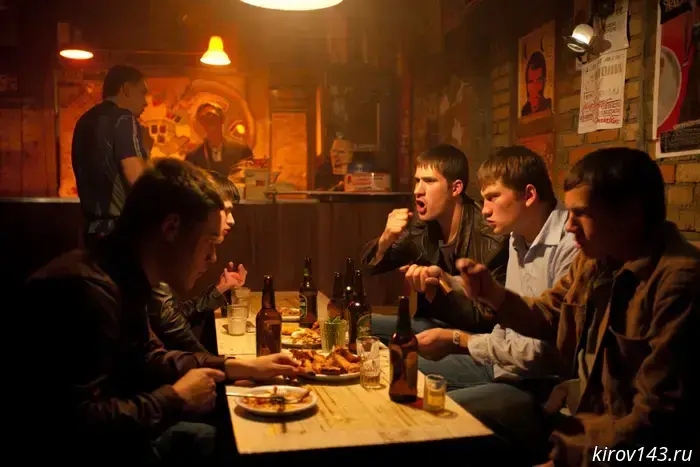 Young hooligans were detained in Kirov.
Rosgvardiya officers detained three young men who caused scandals in a cafe and sauna. One of them was wanted for theft.
Young hooligans were detained in Kirov.
Rosgvardiya officers detained three young men who caused scandals in a cafe and sauna. One of them was wanted for theft.
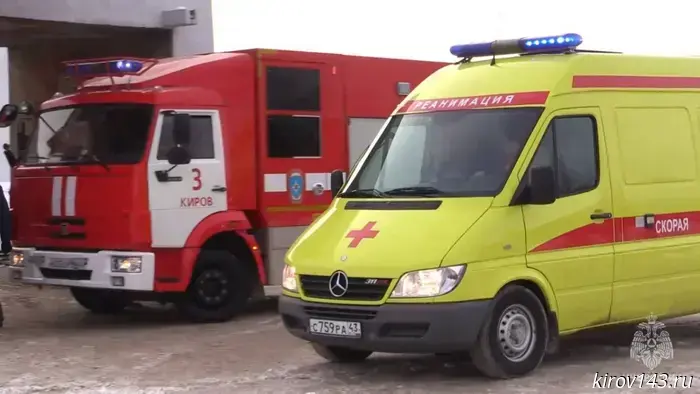 Five fires in a day: rescuers of the Kirov region eliminated fires in houses and in the open area
From April 11 to April 12, five fires occurred in the Kirov region. The fire damaged residential buildings and covered several thousand square meters of dry grass. More than 50 people participated in the extinguishing.
Five fires in a day: rescuers of the Kirov region eliminated fires in houses and in the open area
From April 11 to April 12, five fires occurred in the Kirov region. The fire damaged residential buildings and covered several thousand square meters of dry grass. More than 50 people participated in the extinguishing.
 Love horoscope: Leo will want proof of love, and Scorpios will want to move mountains
Astrologers have told us what events in the personal life of each zodiac sign will take place this Saturday.
Love horoscope: Leo will want proof of love, and Scorpios will want to move mountains
Astrologers have told us what events in the personal life of each zodiac sign will take place this Saturday.
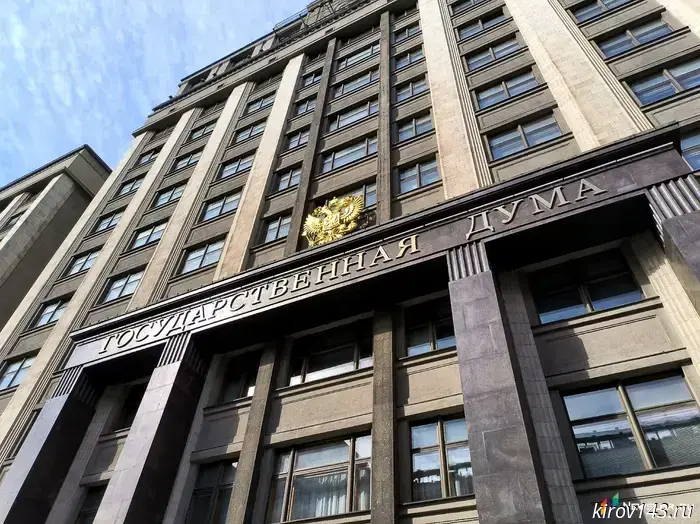 The State Duma proposes to return a 50% discount on traffic fines with a quick payment.
The State Duma has once again started talking about the return of the previous 50% discount on fines for traffic violations. The corresponding initiative is being prepared by deputies from the LDPR faction.
The State Duma proposes to return a 50% discount on traffic fines with a quick payment.
The State Duma has once again started talking about the return of the previous 50% discount on fines for traffic violations. The corresponding initiative is being prepared by deputies from the LDPR faction.
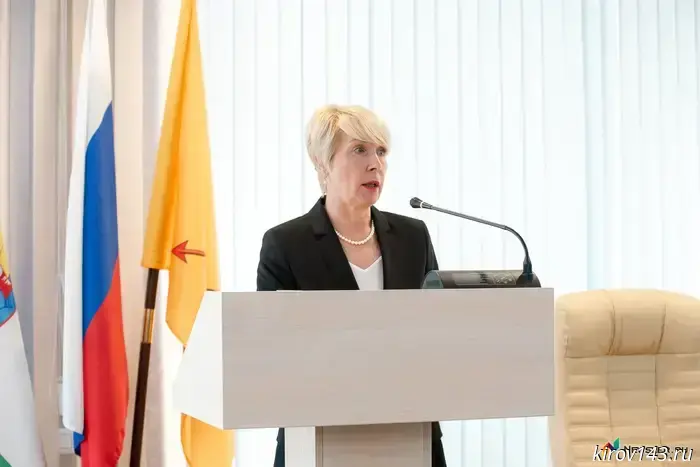 Elena Kovaleva congratulated Kirov residents on Cosmonautics Day
The head of Kirov, Elena Kovaleva, congratulated the residents of the city on Cosmonautics Day, noting the special connection of the region with the history of space exploration.
Elena Kovaleva congratulated Kirov residents on Cosmonautics Day
The head of Kirov, Elena Kovaleva, congratulated the residents of the city on Cosmonautics Day, noting the special connection of the region with the history of space exploration.
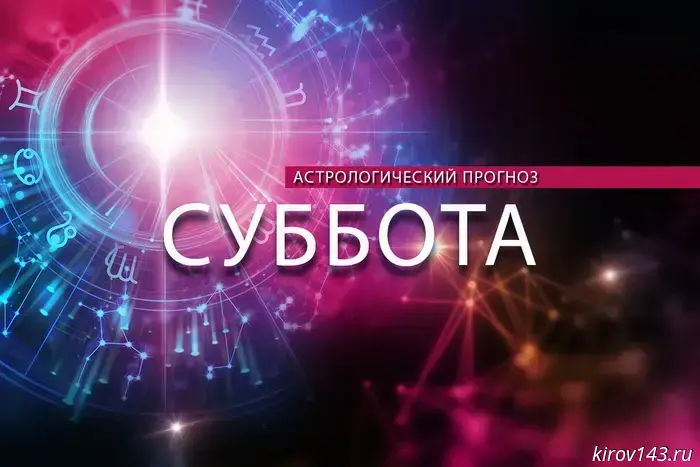 Cancers need to start acting, and Aquarians will have a stronger intuition.
Astrologers have predicted what Saturday will be like for all zodiac signs.
Cancers need to start acting, and Aquarians will have a stronger intuition.
Astrologers have predicted what Saturday will be like for all zodiac signs.
Analysis of trade war risks and their impact on the Russian economy
Alexander Anikitin, a professional trader, financial analyst and founder of the Kirov Trading School, shared his opinion on the impact of global trends on the economy.
